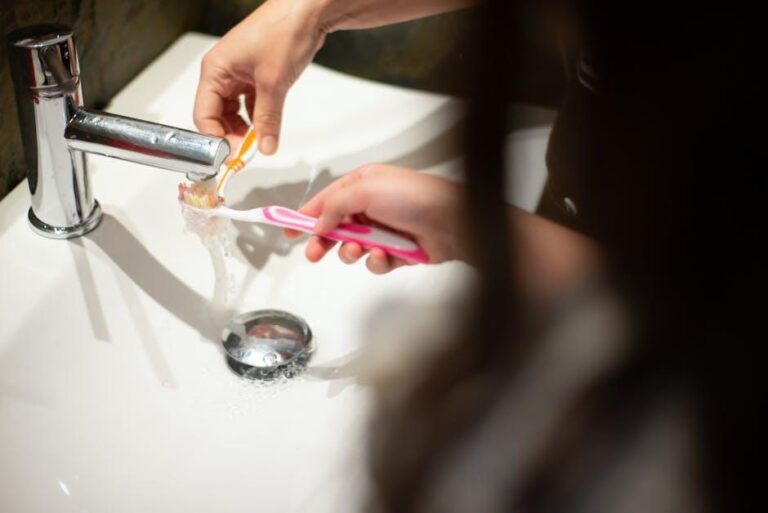Dr. Paul McConnell Talks About Kids & Dental Health – Eyewitness News (WEHT/WTVW)
Expert advice from Dr. Paul McConnell on the importance of dental care for children and practical tips for maintaining healthy smiles.
Introduction: Why Kids’ Dental Health Matters
Every parent knows a bright, healthy smile is a precious gift to their child. Yet, maintaining good dental health for kids requires awareness, proper habits, and regular professional care. Dr. Paul McConnell, a renowned pediatric dentist, recently spoke on Eyewitness News (WEHT/WTVW) to shed light on children’s oral health—highlighting why starting early with dental care is critical for long-lasting benefits.
This article dives into Dr. McConnell’s expert insights, sharing essential tips and best practices for parents and caregivers to keep their kids’ teeth strong and healthy.
Key Insights from Dr. Paul McConnell on Kids & Dental Health
Dr. McConnell emphasizes a holistic approach to pediatric dental care, noting that healthy teeth form the foundation for a child’s overall well-being. Here are some of his key points:
- Start Dental Visits Early: The American Academy of Pediatric Dentistry recommends scheduling your child’s first dental visit by their first birthday or within six months after their first tooth erupts.
- Daily Oral Hygiene: Brushing twice a day with fluoride toothpaste and flossing daily are critical habits to prevent cavities and gum disease.
- Balanced Nutrition: Limiting sugary snacks and encouraging fresh fruits, vegetables, and dairy can enhance dental health and overall growth.
- Fluoride Use: Fluoride strengthens enamel and prevents tooth decay — Dr. McConnell advises consulting your dentist about topical fluoride treatments for your child.
- Monitor Thumb Sucking and Pacifier Use: Prolonged habits can affect teeth alignment; early intervention can avoid future orthodontic issues.
Benefits of Early Dental Care for Children
Understanding the benefits helps parents stay motivated to follow Dr. McConnell’s guidance:
- Prevents Tooth Decay and Cavities: Early care reduces the chances of painful cavities and the need for invasive dental treatments.
- Builds Healthy Habits: Kids who learn to care for their teeth young tend to carry good oral hygiene into adulthood.
- Improves Speech and Eating: Healthy teeth affect speech development and proper chewing, crucial during growing years.
- Boosts Self-Confidence: A bright smile promotes confidence and social interaction.
- Detects Problems Early: Regular check-ups help identify and address dental issues before they become serious.
Practical Tips from Dr. McConnell for Parents
In addition to regular professional visits, here are practical daily tips parents can adopt to promote excellent dental health for their kids:
| Tip | Explanation |
|---|---|
| Use the Right Toothbrush | Choose a small, soft-bristled toothbrush designed for children, making brushing safer and more effective. |
| Be a Role Model | Brush and floss with your children, encouraging them to mimic good behaviors. |
| Limit Sugary Drinks | Replace soda and juice with water or milk to reduce cavity-causing sugars. |
| Make Dental Care Fun | Use colorful timers or songs to make the 2-minute brushing routine enjoyable and memorable. |
| Schedule Regular Check-Ups | Visit your pediatric dentist every six months to keep track of growth and oral health. |
Firsthand Experience: Parents Share Their Stories
Many parents who have implemented Dr. McConnell’s advice report seeing remarkable improvements in their children’s dental health:
“After our daughter started seeing Dr. McConnell at age one, we’ve had zero cavities to worry about. The team taught us easy routines that stick with our family.”
“Dr. McConnell’s tips on healthy snacks really helped our son cut down on sugar. His teeth are strong and he actually looks forward to brushing every day!”
Common Questions About Kids’ Dental Health
- When should I start brushing my baby’s teeth?
- Begin cleaning your baby’s mouth even before teeth erupt by gently wiping gums with a damp cloth. Use a soft baby toothbrush once teeth start coming in.
- How much toothpaste should a child use?
- For children under 3 years, use a smear or rice-sized amount of fluoride toothpaste. From ages 3 to 6, use a pea-sized amount.
- Are children’s dental X-rays safe?
- Yes. Dental X-rays use very low radiation and are safe. They help detect cavities and dental issues not visible to the eye.
- What if my child is afraid of the dentist?
- Discuss fears openly, schedule friendly visits, and choose a pediatric dentist like Dr. McConnell experienced in making children comfortable.


